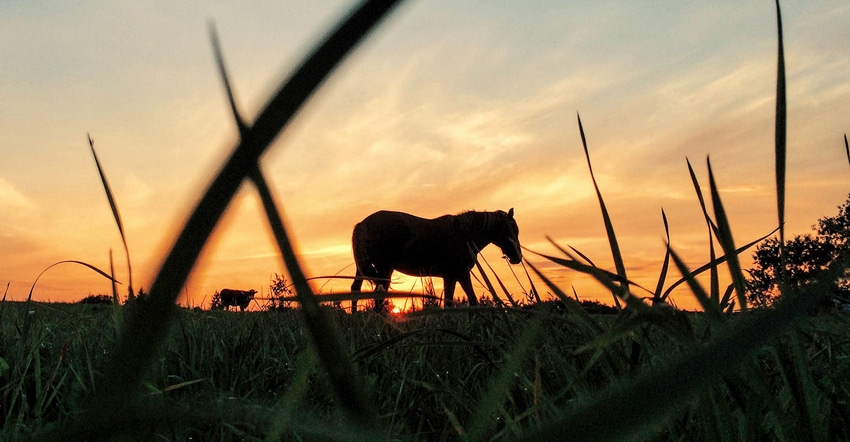March 19, 2019

Equine herpes virus with neurologic signs was first discovered in Nevada late last week and announced March 15. In recent days, the issue has expanded. With the first case, reported in Clark County, the Nevada Department of Agriculture ordered a quarantine. Today, March 19, NDA recommends that all Nevada horse events for the coming weekend be canceled or postponed.
This latest order comes in light of the discovery that horses from around the state may have been exposed at an event March 8 to 10 in Fernley. State Veterinarian JJ Goicoechea is urging that the events be canceled, especially in southern Nevada, in an effort to slow spread of the disease. “We are coordinating with event managers to take every precaution to mitigate continued spread,” he added.
After the initial quarantine in Clark County, Goicoechea received reports of two more confirmed cases of EHV-1 in the state and has quarantined two more facilities. All horse owners in the state are urged to take temperatures on horses at last twice a day and check for signs of respiratory disease.
Goicoechea noted that the disease can cause respiratory disease in young horses, abortions in pregnant mares and neurologic disease in older horses. Horses at the Nevada State Junior/High School Rodeo held Feb. 22-24 in Pahrump may have been exposed and should be monitored for signs of disease, including fever, cough or runny nose.
The average incubation period for EHV-1 is four to seven days, but some may take up to 14 days. Eight to 12 days after infection first appears, neurological disease may occur. EHV-1 is a reportable disease, meaning when veterinarians diagnose it, they are required to notify NDA.
In a release, Goicoechea said: “I urge all horse owners to monitor their horses closely, taking temperatures twice daily and seeking veterinarian care for any fevers over 102 degrees. It is especially important to practice biosecurity to minimize risk of spreading disease.”
Biosecurity tactics
Here are key biosecurity moves that aim to help reduce the spread of the disease. EHV-1, and other diseases, can be easily transferred on boots, coats, gloves and equipment. Some basic practice include:
* Never share equipment between horses, and always wear clean clothes when going from ill horses to others.
* Always start chores at healthy horses, and end with sick or recovering (within 30 days) horses.
* Avoid common areas such as hitching rails, wash racks, etc. during an outbreak.
Source: Nevada Department of Agriculture. The source is solely responsible for the information provided and is wholly owned by the source. Informa Business Media and all its subsidiaries are not responsible for any of the content contained in this information asset.
You May Also Like




